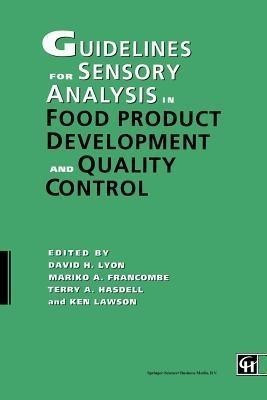Guidelines for Sensory Analysis in Food Product Development and Quality Control(English, Paperback, Lyon David H.)
Quick Overview
Product Price Comparison
Sensory analysis is not new to the food industry, but its application as a basic tool in food product development and quality control has not been given the recognition and acceptance it deserves. This, we believe, is largely due to the lack of understanding about what sensory analysis can offer in product research, development and marketing, and a fear that the discipline is 'too scientific' to be practical. To some extent, sensory scientists have perpetuated this fear with a failure to recognize the constraints of industry in implementing sensory testing procedures. These guidelines are an attempt to redress the balance. Of course, product 'tasting' is carried out in every food company: it may be the morning tasting session by the managing director, competitor comparisons by the marketeers, tasting by a product 'expert' giving a quality opinion, comparison of new recipes from the product development kitchen, or on-line checking during pro- duction. Most relevant, though, is that the people respon- sible for the tasting session should know why the work is being done, and fully realize that if it is not done well, then the results and conclusions drawn, and their implications, are likely to be misleading. If, through the production of these guidelines, we have influenced some people suffi- ciently for them to re-evaluate what they are doing, and why, we believe our efforts have been worthwhile.


